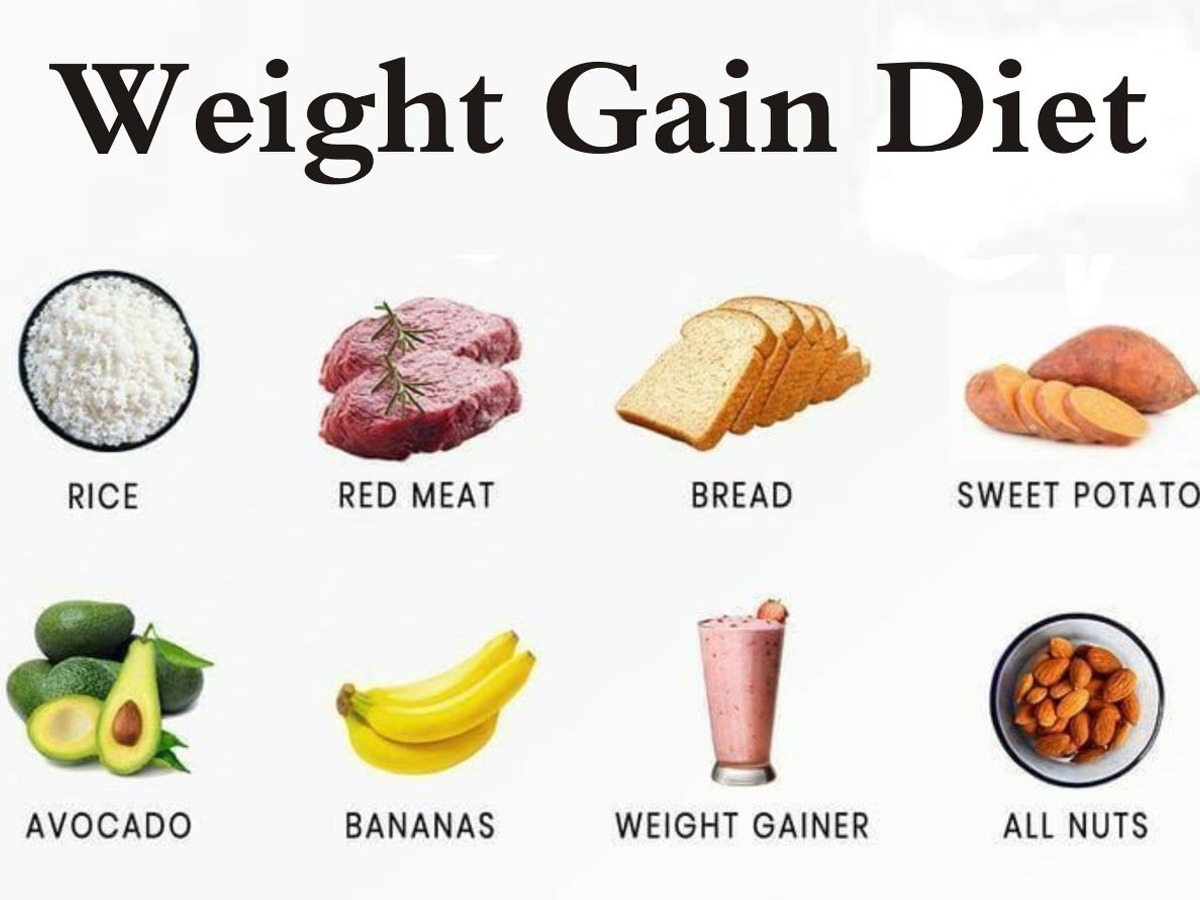When embarking on a journey to gain weight, crafting a well-rounded meal plan is essential. This endeavor requires a thoughtful approach, focusing not only on calorie intake but also on the quality of foods consumed. By strategically selecting nutrient-rich options, individuals can support their bodies in building muscle mass and achieving their weight gain goals. In this article, we delve into the best foods to include in a weight gain meal plan, offering valuable insights and practical tips for success.
Nutrient-Dense Foods
Protein-rich foods
Protein is essential for muscle growth and repair, making it a cornerstone of any weight gain meal plan. Opt for lean sources of protein such as chicken breast, turkey, fish, eggs, and legumes. These foods not only provide the building blocks for muscle development but also help keep you feeling full and satisfied.

Healthy fats
Incorporating healthy fats into your diet is another key component of a weight gain meal plan. Choose foods rich in monounsaturated and polyunsaturated fats, such as avocados, nuts, seeds, and olive oil. These fats are not only calorie-dense but also contribute to heart health and overall well-being.
Complex carbohydrates
Carbohydrates are your body's primary source of energy, making them essential for fueling intense workouts and supporting weight gain efforts. Focus on consuming complex carbohydrates like whole grains, sweet potatoes, quinoa, and oats. These foods provide a steady release of energy and are packed with fiber, vitamins, and minerals.
Fruits and vegetables
While fruits and vegetables may not be calorie-dense compared to other food groups, they are still essential for overall health and well-being. Aim to include a variety of colorful fruits and vegetables in your weight gain meal plan to ensure you're getting a wide range of vitamins, minerals, and antioxidants.
Meal Ideas
Breakfast options
- Protein-packed smoothie: Blend together protein powder, Greek yogurt, banana, spinach, and almond milk for a nutritious and filling breakfast option.
- Egg and vegetable scramble: Cook eggs with mixed vegetables such as peppers, onions, and mushrooms for a hearty morning meal.
Lunch ideas
- Grilled chicken salad: Toss grilled chicken breast with mixed greens, avocado, cherry tomatoes, and a drizzle of olive oil for a satisfying lunch option.
- Quinoa and black bean bowl: Combine cooked quinoa with black beans, roasted vegetables, and a sprinkle of feta cheese for a protein-rich lunch.
Dinner recipes
- Salmon with sweet potato and asparagus: Bake salmon fillets with sweet potato wedges and roasted asparagus for a nutritious and delicious dinner.
- Turkey chili: Simmer ground turkey with beans, tomatoes, and spices for a comforting and high-protein meal.
Snack suggestions
- Greek yogurt with fruit: Enjoy a serving of Greek yogurt topped with your favorite fruits for a quick and easy snack.
- Almond butter and apple slices: Spread almond butter on apple slices for a satisfying snack that combines healthy fats and carbohydrates.
Tips for Effective Weight Gain
Meal timing and frequency
To maximize weight gain, aim to eat regular meals and snacks throughout the day. This helps keep your energy levels stable and prevents overeating at mealtime.
Portion control
While it's important to consume calorie-dense foods, it's also crucial to practice portion control to avoid excessive weight gain. Pay attention to serving sizes and listen to your body's hunger and fullness cues.
Hydration
Staying hydrated is essential for overall health and can support your weight gain efforts by improving digestion and nutrient absorption. Aim to drink plenty of water throughout the day, especially during and after exercise.
Exercise
In addition to following a nutritious meal plan, incorporating regular exercise into your routine is key for building muscle mass and promoting overall health. Focus on strength training exercises that target major muscle groups, and aim to be consistent with your workouts.

Conclusion
Designing an effective weight gain meal plan revolves around incorporating nutrient-dense foods that promote muscle growth and overall well-being. By prioritizing protein-rich foods, healthy fats, complex carbohydrates, and ample fruits and vegetables, individuals can create a balanced diet that supports their weight gain goals in a sustainable manner. Consistency and adherence to portion control are key factors in achieving success. With careful planning and dedication, anyone can embark on a journey towards healthy weight gain and improved vitality.
FAQs
Can I gain weight by eating unhealthy foods?
While consuming high-calorie, unhealthy foods may lead to weight gain, it's essential to prioritize nutrient-dense options for overall health and well-being.
How quickly can I expect to see results from a weight gain meal plan?
The timeline for seeing results from a weight gain meal plan can vary depending on factors such as metabolism, activity level, and overall diet quality. Consistency is key for achieving sustainable results.
Should I consult a healthcare professional before starting a weight gain meal plan?
If you have any underlying health conditions or concerns about weight gain, it's always a good idea to consult with a healthcare professional or registered dietitian before making significant changes to your diet or exercise routine.
Can I customize my weight gain meal plan based on dietary preferences or restrictions?
Absolutely! A weight gain meal plan can be tailored to accommodate dietary preferences, restrictions, and allergies. Work with a registered dietitian to create a personalized plan that meets your individual needs.
Are supplements necessary for a weight gain meal plan?
While supplements can be helpful for some individuals, they are not necessary for everyone. Focus on getting essential nutrients from whole foods first, and consider supplements as a complement to a balanced diet if needed.




.jpg)
Comments